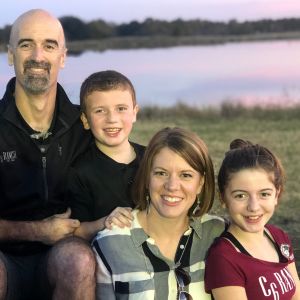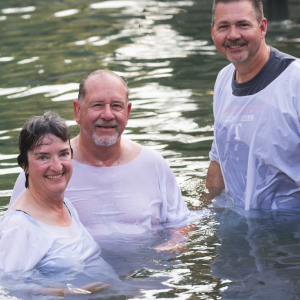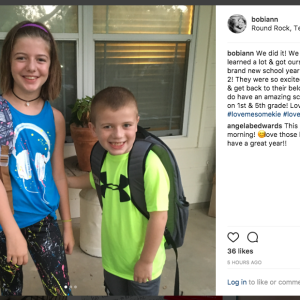 For 15 years, I worked with teenagers or pre-teenagers. I took seriously my job in disciplining students because they were young and needed to be taught the fundamental skills of personally interacting with God. Since entering into a role that involves more interaction with adults, one of the key things I’ve noticed is that many adults have never been taught the skills needed to personally interact with God. Because, we’re adults, we’re expected to know how to pray, how to study the Bible, how to have a quiet time but the best I can tell, a lot of people don’t know how! So, today, we’re going to look at 4 thoughts on HOW to go deeper in Bible Study.
For 15 years, I worked with teenagers or pre-teenagers. I took seriously my job in disciplining students because they were young and needed to be taught the fundamental skills of personally interacting with God. Since entering into a role that involves more interaction with adults, one of the key things I’ve noticed is that many adults have never been taught the skills needed to personally interact with God. Because, we’re adults, we’re expected to know how to pray, how to study the Bible, how to have a quiet time but the best I can tell, a lot of people don’t know how! So, today, we’re going to look at 4 thoughts on HOW to go deeper in Bible Study.
1. Get in Context
It is important to understand that the Bible is a story. It is a big story of God’s relationship with Man. Often when reading a verse out of the Bible, we do so without understanding the context of the verse. Understanding what is happening in the story allows you, the student, to connect with the scene, the dialogue and the emotions that take place in a passage of Scripture. I know you’re asking, how do I know the context?
You don’t have to be seminary trained to study the Bible. A good study Bible or even a reputable Bible website like biblegateway.com can give you access to great information about the context of the particular Scripture you are reading.
2. Be Curious
Too often the only questions we ask when reading a passage of the Bible is “Where is the end of the passage so I can check Bible reading off my list?” Well, that won’t get you very deep. Ask better questions? Ask yourself, Where else have I seen this mentioned in Scripture? What did it smell like in that wheat field? Where were the kids when their mothers were going to the well for water? [Tweet “Ask questions about what may seem like inconsistencies. It’s okay, the Bible can handle it. “]
3. Do a Greek or Hebrew Word Study
It may seem like more than you think you can handle, but trust me, you can do it. The Bible is full of depth. There is so much more there than what we read on the surface. By digging into the original language, you can discover layers of meanings to the words you read in the Bible.
I don’t pretend to be fluent or the least bit versed in Greek or Hebrew but that doesn’t mean I can’t look it up. I like the website biblehub.com. There are also other great resources like “Mounce’s Complete Expository Dictionary of Old and New Testament Words” that you can buy on Amazon that are easy to use for the non-Greek/Hebrew students like me.
4. Take a Break
It’s interesting and usually very insightful to go deep in the Word, but don’t overwhelm yourself. Take a break. Read a devotional, listen to a praise song or write in your journal. It’s important to set a pace that allows the truth you are collecting to sink in, to marinate for awhile. Allow yourself to become not only a collector of information but an executor of truth. [Tweet “Allow yourself to become not only a collector of information but an executor of truth.”]
In order for deeper Bible study to become a consistent habit, don’t neglect the sweet parts of your personal time with God. Let God speak to you in the ways that He has faithfully spoken to you in the past. Deep Bible study is meant to enhance your interaction with God. Take a break and let God speak to you about what you are learning.
A Final Thought
[Tweet “I am convinced the most important part of studying the Bible is the Holy Spirit.”]
I am convinced the most important part of studying the Bible is the Holy Spirit. As you approach your time in the Word, prayerfully ask God to give you eyes for truth. Let the Holy Spirit speak to you. These are what I believe to be helpful pointers for deeper Bible Study. As helpful as these pointers can be, they won’t hold a candle to what the Holy Spirit can teach. Make room for the Spirit in Your life.
Question: What ways have you found helpful when studying the Bible? What resources do you use?
























